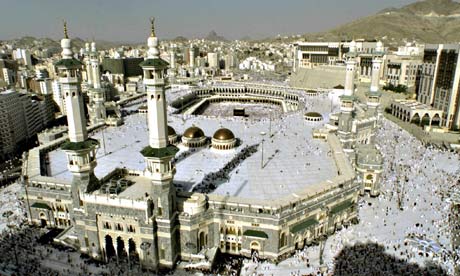Nigeria: Saudi-Arabia Deports More Women Pilgrims
The authorities of Saudi Arabia insisted that the women were unaccompanied by male relations which was considered against laid down rules of the kingdom.
An adamant Saudi Arabia has so far refused to yield any ground to Nigeria on the issue of alleged unaccompanied female pilgrims, in spite of spirited diplomatic efforts by the Federal Government.
An intriguing development was that the husband of one of the female deportees also returned home with his wife, in protest, when the Saudi Authorities refused to clear his wife, even after explaining that he was the husband of the woman.
According to the VANGUARD, a highly placed source at the National Hajj Commission who disclosed this said that the return (in protest) by the male pilgrim in question was an indication that there was more to the stance of the Saudi authorities than meets the eyes.
He said: "On board of the plane bringing the women is also a male pilgrim. He decided to return home with his wife in protest when his explanations and entreaties to the fact that his wife was accompanied fell on deaf ears. That shows clearly that there is more to the issue than meets the eyes".
President Goodluck Ebele Jonathan constituted a Presidential delegation to interface with the Saudi authorities over the issue surrounding the detained Nigerian female pilgrims at King Abdul-Azziz International Airport, Jeddah.
Senate had asked President Goodluck Jonathan to liaise with the King of Saudi Arabia, King Fahad Abdulaziz to allow over 1, 500 Nigerian female pilgrims stranded in Saudi airport entry into the holy land to perform their hajj.
Meanwhile, the Saudi Arabian Ambassador to Nigeria, Mr. Khalid Abdrabuh gave an assurance that the controversy over the detention of about 1,200 female Nigerian pilgrims in Saudi Arabia will be resolved.
More than 908 women were detained at the Jeddah Airport while 171 of them were deported to Nigeria on Wednesday.
The Saudi Ambassador explained that the issue of detention of pilgrims who failed to meet entry requirements was not restricted to Nigeria. According to him, some pilgrims from other countries have also been subjected to similar screening on arrival at the Holy Land.
He also hinted that officials of the Saudi Ministry of Hajj were already holding talks with a delegation of the Nigerian Ministry of Foreign Affairs in Mecca on the issue.
The standoff began when the Saudi Arabian authorities discovered that hundreds of female Nigerian pilgrims were without their statutory male escorts which is a prerequisite to entry into Saudi Arabia.

